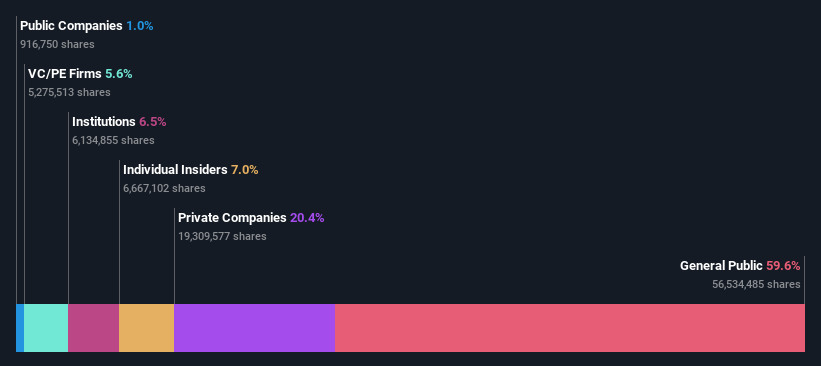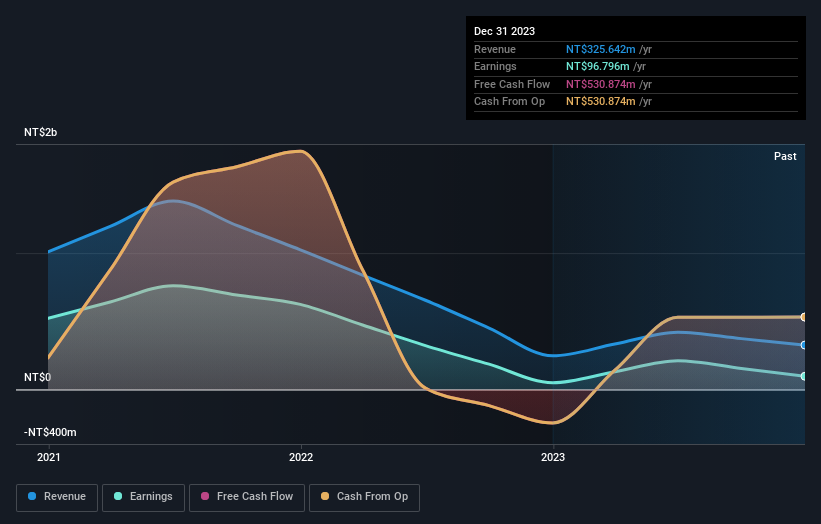Key Insights
-
The considerable ownership by retail investors in Hotung Investment Holdings indicates that they collectively have a greater say in management and business strategy
-
A total of 15 investors have a majority stake in the company with 40% ownership
-
Using data from company’s past performance alongside ownership research, one can better assess the future performance of a company
Every investor in Hotung Investment Holdings Limited (SGX:BLS) should be aware of the most powerful shareholder groups. The group holding the most number of shares in the company, around 60% to be precise, is retail investors. That is, the group stands to benefit the most if the stock rises (or lose the most if there is a downturn).
Meanwhile, private companies make up 20% of the company’s shareholders.
Let’s delve deeper into each type of owner of Hotung Investment Holdings, beginning with the chart below.
See our latest analysis for Hotung Investment Holdings
What Does The Institutional Ownership Tell Us About Hotung Investment Holdings?
Institutions typically measure themselves against a benchmark when reporting to their own investors, so they often become more enthusiastic about a stock once it’s included in a major index. We would expect most companies to have some institutions on the register, especially if they are growing.
We can see that Hotung Investment Holdings does have institutional investors; and they hold a good portion of the company’s stock. This can indicate that the company has a certain degree of credibility in the investment community. However, it is best to be wary of relying on the supposed validation that comes with institutional investors. They too, get it wrong sometimes. When multiple institutions own a stock, there’s always a risk that they are in a ‘crowded trade’. When such a trade goes wrong, multiple parties may compete to sell stock fast. This risk is higher in a company without a history of growth. You can see Hotung Investment Holdings’ historic earnings and revenue below, but keep in mind there’s always more to the story.
We note that hedge funds don’t have a meaningful investment in Hotung Investment Holdings. Looking at our data, we can see that the largest shareholder is Tai Lung Capital Inc. with 18% of shares outstanding. In comparison, the second and third largest shareholders hold about 6.4% and 5.6% of the stock. Furthermore, CEO Tsui-Hui Huang is the owner of 1.4% of the company’s shares.
On studying our ownership data, we found that 15 of the top shareholders collectively own less than 50% of the share register, implying that no single individual has a majority interest.
While studying institutional ownership for a company can add value to your research, it is also a good practice to research analyst recommendations to get a deeper understand of a stock’s expected performance. Our information suggests that there isn’t any analyst coverage of the stock, so it is probably little known.
Insider Ownership Of Hotung Investment Holdings
The definition of company insiders can be subjective and does vary between jurisdictions. Our data reflects individual insiders, capturing board members at the very least. The company management answer to the board and the latter should represent the interests of shareholders. Notably, sometimes top-level managers are on the board themselves.
I generally consider insider ownership to be a good thing. However, on some occasions it makes it more difficult for other shareholders to hold the board accountable for decisions.
Our most recent data indicates that insiders own some shares in Hotung Investment Holdings Limited. It has a market capitalization of just S$138m, and insiders have S$9.7m worth of shares, in their own names. This shows at least some alignment, but we usually like to see larger insider holdings. You can click here to see if those insiders have been buying or selling.
General Public Ownership
The general public, who are usually individual investors, hold a substantial 60% stake in Hotung Investment Holdings, suggesting it is a fairly popular stock. This level of ownership gives investors from the wider public some power to sway key policy decisions such as board composition, executive compensation, and the dividend payout ratio.
Private Equity Ownership
With a stake of 5.6%, private equity firms could influence the Hotung Investment Holdings board. Some might like this, because private equity are sometimes activists who hold management accountable. But other times, private equity is selling out, having taking the company public.
Private Company Ownership
It seems that Private Companies own 20%, of the Hotung Investment Holdings stock. It might be worth looking deeper into this. If related parties, such as insiders, have an interest in one of these private companies, that should be disclosed in the annual report. Private companies may also have a strategic interest in the company.
Next Steps:
It’s always worth thinking about the different groups who own shares in a company. But to understand Hotung Investment Holdings better, we need to consider many other factors. For instance, we’ve identified 2 warning signs for Hotung Investment Holdings (1 is significant) that you should be aware of.
Of course this may not be the best stock to buy. So take a peek at this free free list of interesting companies.
NB: Figures in this article are calculated using data from the last twelve months, which refer to the 12-month period ending on the last date of the month the financial statement is dated. This may not be consistent with full year annual report figures.
Have feedback on this article? Concerned about the content? Get in touch with us directly. Alternatively, email editorial-team (at) simplywallst.com.
This article by Simply Wall St is general in nature. We provide commentary based on historical data and analyst forecasts only using an unbiased methodology and our articles are not intended to be financial advice. It does not constitute a recommendation to buy or sell any stock, and does not take account of your objectives, or your financial situation. We aim to bring you long-term focused analysis driven by fundamental data. Note that our analysis may not factor in the latest price-sensitive company announcements or qualitative material. Simply Wall St has no position in any stocks mentioned.
Have feedback on this article? Concerned about the content? Get in touch with us directly. Alternatively, email [email protected]

















